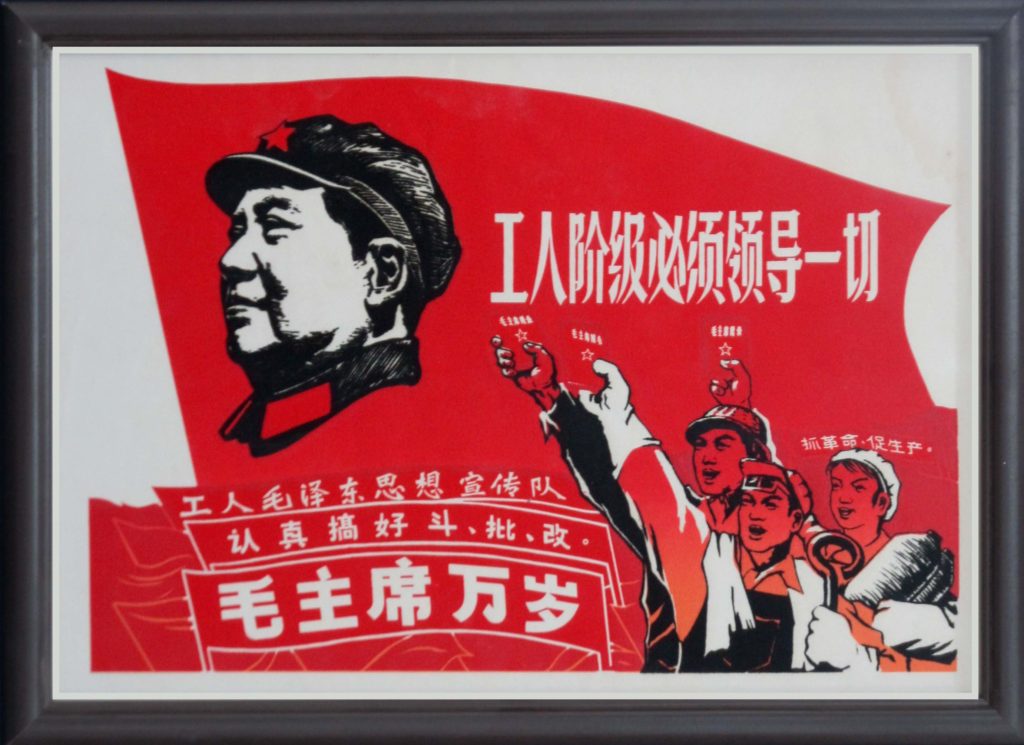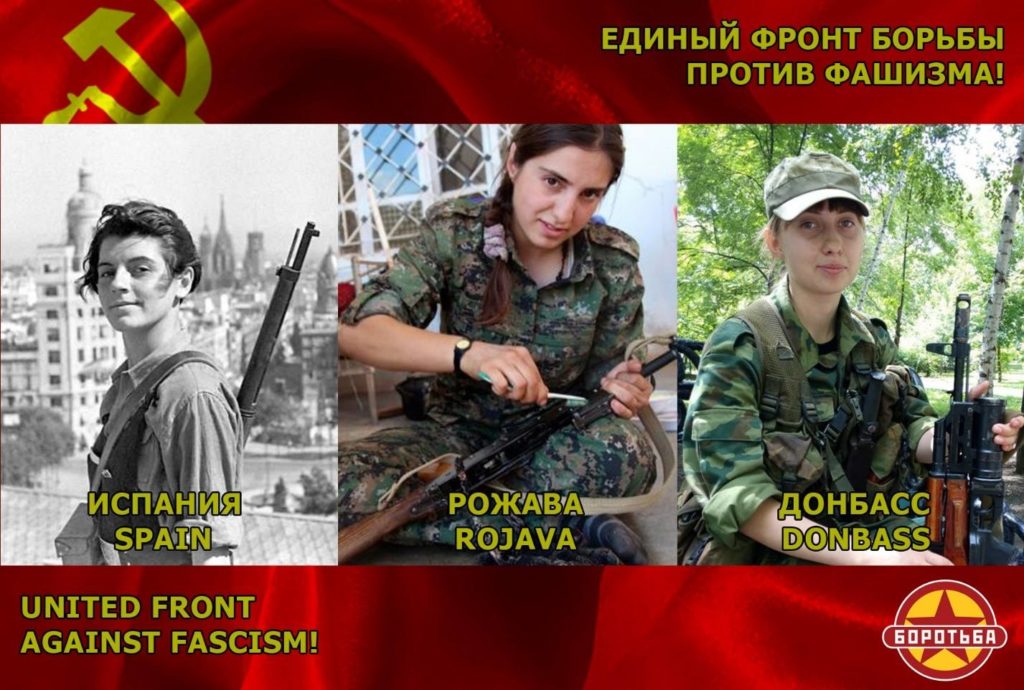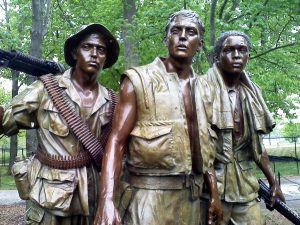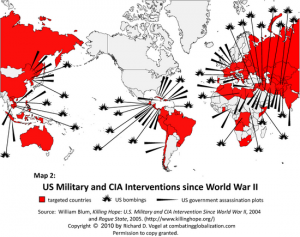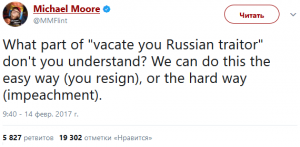A great high tide of struggle-criticism-transformation is coming. The publication of Chairman Mao’s latest instructions and the systematic entry, under leadership, of the mighty army of industrial workers into schools and all other units where struggle-criticism-transformation has not been carried out well are signals of the coming high tide. This high tide follows the work on a number of tasks, including the establishment of revolutionary committees in provinces, municipalities and autonomous regions, mass criticism and repudiation and the purifying of the class ranks. It will bring about profound changes in all fields, fiercely storm all those parts of the superstructure which do not conform to the socialist economic base, educate the masses, smash the hidden reactionaries, carry the great proletarian cultural revolution forward to all-round victory and greatly stimulate the development of the social productive forces.
The important task now confronting the revolutionary committees at all levels is to do the work of struggle-criticism-transformation conscientiously and well, and without losing any time. In order to accomplish this task, it is imperative to persist in leadership by the working class and to “bring into full play the leading role of the working class in the great cultural revolution and in all fields of work.”
The slogan of replacing the dictatorship of the bourgeoisie with the dictatorship of the proletariat was put forth from the very time when Marxism began to take shape in the mid-19th century, one hundred and twenty years ago. Only imperialism, the landlord class, the bourgeoisie and their agents — the revisionists, old and new — are opposed to this thoroughgoing revolutionary slogan. The Communist Party of China takes this slogan as its basic programme. In order to realize this slogan, it is essential to unite with the non-worker masses, mainly the peasant masses, the urban petty bourgeoisie and those intellectuals who can be remoulded, and to lead them forward.
Throughout the entire process, the great proletarian cultural revolution has been under the sole leadership of one class only, the working class. Our Party is the vanguard of the proletariat. The proletarian headquarters headed by Chairman Mao and with Vice-Chairman Lin Piao as its deputy leader represents in a concentrated way the interests of the working class, the poor and lower-middle peasants and the masses of labouring people; it is the only centre of leadership for the whole Party, the whole army, the whole nation and the masses of revolutionary people. Chairman Mao’s proletarian revolutionary line and all his instructions reflect the pressing demands of the working class and of the hundreds of millions of revolutionary people and embody the proletariat’s firm and strong leadership of the whole great proletarian cultural revolution. It was the leadership of the proletarian headquarters headed by Chairman Mao that made it possible to launch the great proletarian cultural revolution in which hundreds of millions of revolutionary people are taking part. To persist in working-class leadership it is essential, first and foremost, to ensure that every instruction from Chairman Mao, the great leader of the working class, and every order issued by the supreme fighting command of the working class are carried out swiftly and smoothly. The theory of “many centres,” that is, the theory of “no centre,” mountain-stronghold mentality, sectarianism and other reactionary bourgeois trends undermining working-class leadership must be opposed. The revolutionary committees in all places are organs of power of the dictatorship of the proletariat. All units should accept leadership by the revolutionary committees. It is impermissible to allow in our country the existence of any “independent kingdom,” big or small, which is counter-posed to Chairman Mao’s proletarian headquarters. The old Peking Municipal Party Committee, this watertight and impenetrable “independent kingdom” which resisted Chairman Mao’s instructions, was a means used by the gang of big conspirators, China’s Khrushchov and company, to oppose working-class leadership and restore capitalism. This “independent kingdom” was completely smashed by revolutionary storms. This historical lesson in class struggle should be borne in mind by all revolutionaries. The citizens of “independent kingdoms,” big or small, under the control of bourgeois elements in various parts of the country should also study this lesson.
The workers’ propaganda teams are entering the field of education. This is an earth-shaking event. Schools were the monopoly of the exploiting classes and their children from ancient times. Conditions improved somewhat after liberation, but in the main the schools were still monopolized by bourgeois intellectuals. Some students from these schools have been able for various reasons to integrate themselves with the workers, peasants and soldiers and serve them (generally speaking, because they themselves or their teachers are comparatively good or because of the influence of their families, relatives or friends, but chiefly because of the influence of society). Some others have not. In a state of the dictatorship of the proletariat, there is a serious situation — the bourgeoisie contends with the proletariat for leadership. When the young Red Guard fighters rose in rebellion against the handful of capitalist roaders within the Party during the current great proletarian cultural revolution, the reactionary bourgeois forces in the schools for a while got hard blows. But shortly afterwards, certain people were again active in secret. They incited the masses to ?struggle against each other, and set themselves to sabotage the great cultural revolution, disrupt struggle-criticism-transformation, undermine the great alliance and the revolutionary “three-in-one” combination and obstruct the work of purifying the class ranks and of Party rectification. All this has aroused dissatisfaction among the masses. The facts show us that under such circumstances it is impossible for the students and intellectuals by themselves alone to fulfil the task of struggle-criticism-transformation and a whole number of other tasks on the educational front; workers and People’s Liberation Army fighters must take part, and it is essential to have strong leadership by the working class.
Chairman Mao recently pointed out: “In carrying out the proletarian revolution in education, it is essential to have working-class leadership; it is essential for the masses of workers to take part and, in co-operation with Liberation Army fighters, bring about a revolutionary ‘three-in-one’ combination, together with the activists among the students, teachers and workers in the schools who are determined to carry the proletarian revolution in education through to the end. The workers’ propaganda teams should stay permanently in the schools and take part in fulfilling all the tasks of struggle-criticism-transformation in the schools, and they will always lead the schools. In the countryside, the schools should be managed by the poor and lower-middle peasants — the most reliable ally of the working class.”
This instruction of Chairman Mao’s indicates the orientation and road for the educational revolution in the schools. It is a sharp weapon for thoroughly destroying the bourgeois educational system. The masses of young students should enthusiastically welcome the taking over of the school front by the working class, its participating in struggle-criticism-transformation and its always leading the schools.
The working class has rich practical experience in the three great revolutionary movements of class struggle, the struggle for production and scientific experiment. It most bitterly hates all counter-revolutionary words and deeds against socialism and against Mao Tse-tung’s thought. It utterly hates the old educational system which served the exploiting classes. It most strongly opposes the “civil war”” activities of certain intellectuals in damaging state property and obstructing struggle-criticism-transformation. It thoroughly detests the habit of empty talk and the practice of double-dealing, where words and actions do not match. Therefore, when they combine with fighters of the Chinese People’s Liberation Army — the main pillar of the dictatorship of the proletariat — the masses of the working class will be most powerful in stopping all erroneous tendencies contrary to Chairman Mao’s revolutionary line and most effective in resolving all kinds of problems which have been described as longstanding, big and difficult. Contradictions that the intellectuals have been quarrelling over without end and unable to resolve are quickly settled when the workers arrive. As regards the handful of villains who have been hiding behind the scenes and inciting the masses to struggle against each other, only when the workers and Liberation Army fighters take a hand in this matter is it possible to lay their counter-revolutionary features completely bare.
“It’s quite enough for the workers to run factories.” This is an anti-Marxist viewpoint. The working class understands that it can achieve its own final emancipation only by emancipating all mankind. Without carrying the proletarian revolution in education in the schools through to the end and without rooting out revisionism, the working class cannot achieve its final emancipation, and the danger of capitalist restoration and of the working class being again exploited and oppressed will still exist. It is the bounden duty of the politically conscious working class to take an active part in the great cultural revolution in all fields and to ensure that Mao Tse-tung’s thought occupies every front in culture and education.
“Let us liberate ourselves. There is no need for the workers outside school to join in.” What the 16-Point Decision states is that the method “is for the masses to liberate themselves.” Are the workers not included in the “masses”? Is the working class not your own? All genuine proletarian revolutionaries — not those who pay lip-service to deceive people—regard the working class as their own and as the most advanced section of the masses of the people with the highest political consciousness. The “three-in-one” combination of workers, soldiers and the revolutionary activists in the schools is the most reliable guarantee for the masses to liberate themselves. Whoever looks on the workers as a force alien to himself is, if not muddle-headed, himself an element alien to the working class; and the working class then has every reason to exercise dictatorship over him. Some intellectuals who are self-proclaimed “proletarian revolutionaries” oppose the workers whenever the working class touches on the interests of their tiny “independent kingdoms.” There are still quite a few people in China like Lord Sheh who was fond of dragons but was frightened out of his wits when a real dragon paid him a visit. These are the people who look down upon the workers and peasants, like to put on airs and think themselves great. As a matter of fact, they are just modern Lord Shehs. It is essential for the workers and People’s Liberation Army fighters to go to those places where intellectuals are concentrated, be they schools or other units, to smash the complete domination by intellectuals, occupy the “independent kingdoms,” big or small, and take over those places where the advocates of the theory of “many centres,” that is, the theory of “no centre,” are entrenched. In this way, the unhealthy atmosphere, style of work and thinking that exist among intellectuals in concentrated groups can be changed and thus there is the possibility for intellectuals to remould themselves and achieve liberation.
“Workers don’t understand education.” So say some so-called high-ranking intellectuals. Away with your ugly, bourgeois intellectual airs! There are two kinds of education: bourgeois education and proletarian education. What you “understand” is the pseudo-knowledge of the bourgeoisie. Those who teach science and engineering do not know how to operate or repair machines; those who teach literature do not know how to write essays; those who teach agricultural chemistry do not know how to use fertilizer. Aren’t such laughing-stocks to be found everywhere? The proletarian educational system under which theory and practice accord with each other can be gradually brought into being only if the proletariat takes a direct part. You are utterly ignorant of this.
“The workers don’t know the situation in the schools and the history of the struggle between the two lines.” Don’t worry, comrades. The workers will get to know them. Compared with those short-sighted intellectuals who see only their small mountain-strongholds, the working class stands on a far higher eminence. The workers will not stay in the schools for just a few days; they will keep on working there permanently and always occupy the school front and lead the schools. Everything that exists objectively can be known. The working class will deepen its recognition of the world through its own revolutionary practice and remake the world in its own image.
Workers’ propaganda teams should systematically and in a planned way go to universities, middle schools and primary schools, to all areas of the superstructure and to all units in which the struggle-criticism-transformation has not been carried out well. Taking Mao Tse-tung’s thought as the guiding principle, they should unite with and help the activists there who are determined to carry the proletarian revolution in education through to the end, unite with the great majority of the masses including those intellectuals who can be remoulded and, in the proletarian spirit of thoroughgoing revolution, promote the struggle-critic ism-transformation there. This is a great historical mission of the Chinese working class at the present time. In the course of fulfilling this mission, the working class will itself be profoundly steeled in the class struggle and a group of outstanding worker-cadres will emerge, not merely to manage schools but to strengthen every aspect of the state organs and the revolutionary committees at all levels.
In order to fulfil this historical mission, the working class must earnestly study Mao Tse-tung’s thought well, learn the mass line and the style of investigation and study that Chairman Mao has always taught us, make constant efforts to raise their political consciousness, heighten their revolutionary sense of discipline and constantly criticize and repudiate the corrosion and influence of rotten bourgeois ways within the working class. The bourgeoisie has a traditional influence in the cultural and educational units. When the working class transforms the world according to the proletarian world outlook, that is, Mao Tse-tung’s thought, the bourgeoisie always makes every effort to use the bourgeois world outlook to corrode the weak sections in the ranks of the workers, including those of their leading cadres. We must maintain sharp vigilance against this. It is necessary to keep to the firm stand of the proletariat and maintain vigilance against attacks from sugar-coated bullets or other means against the ranks of the workers. We must conscientiously do a good job of purifying the class ranks, grasping revolution and promoting production, and make a success of the struggle-criticism-transformation in factories and other enterprises.
Chairman Mao has recently pointed out: “The struggle-criticism-transformation in a factory, on the whole, goes through the following stages: establishing a revolutionary committee based on the ‘three-in-one’ combination, mass criticism and repudiation, purifying the class ranks, rectifying the Party organization, simplifying organizational structure, changing irrational rules and regulations and sending people who work in offices to grass-roots levels.”
These words of Chairman Mao’s sum up the development of the mass movement during the stage of struggle-criticism-transformation, and clearly point out the road for us to fulfil the task of struggle-critic ism-transformation in factories and other enterprises.
The first task is to establish the “three-in-one” revolutionary committee so that leadership in factories and other enterprises is truly in the hands of the proletariat. This is often carried out in combination with the tasks of mass criticism and repudiation and the purifying, by and large, of the class ranks.
Revolutionary mass criticism and repudiation enables people to wipe out the pernicious influence of the counter-revolutionary revisionist line of China’s Khrushchov and his agents in various places, enhances their consciousness of the struggle between the two lines, opens the way, both politically and ideologically, for purifying the class ranks, and, in the course of purifying the class ranks, plays a role in mobilizing the masses and consolidating the achievements in the struggle. To purify the class ranks and deal sure, accurate and relentless blows at the handful of enemy agents, renegades, diehard capitalist readers and the landlords, rich peasants, counter-revolutionaries, bad elements and Rightists who have not reformed themselves, is an extremely important task for the working class in exercising the dictatorship of the proletariat over the bourgeoisie and all other exploiting classes, purifying its own ranks and weeding out class enemies who have wormed their way into the working class, and it provides the mass criticism and repudiation with vivid living material. Mass criticism and repudiation and the purifying of the class ranks promote each other and give impetus to each other. They create the best conditions for rectifying the Party organization. After going through strict tests in class struggle politically, ideologically and organizationally, the masses of Party members greatly raise their political consciousness and greatly improve their relations with the masses; the very few bad elements are weeded out of the Party; how things stand with Party members both politically and organizationally is basically made clear; a number of activists emerging in the movement are admitted into the Party, thus infusing it with new blood; and a leading nucleus which resolutely implements Chairman Mao’s proletarian revolutionary line is gradually formed. In this way, we can do a good job in rectifying the Party organization and can reach the great goal set by Chairman Mao for Party rectification: “The Party organization should be composed of the advanced elements of the proletariat; it should be a vigorous vanguard organization capable of leading the proletariat and the revolutionary masses in the fight against the class enemy.”
This applies to the movement in industrial and mining enterprises and, broadly speaking, also to the movement in cultural and educational institutions and in the Party and government organs.
The upsurge in revolution spurs the upsurge in production. Thanks to the efforts of the hundreds of millions of poor and lower-middle peasants, agriculture in our country has produced bumper harvests for a number of years running. Only with a solid socialist position in the countryside has it been possible for the great proletarian cultural revolution to win victory after victory in the cities. We salute the poor and lower-middle peasants, the firm ally of the working class. With the deep-going development of the struggle-criticism-transformation, many new things are coming forth on the industrial front as well. In the course of transformation, a vigorous technical revolution has come into being in many places. The situation is excellent and inspiring. The handful of class enemies who vainly attempted to stage a come-back have come to their end. At present, U.S. imperialism, Soviet revisionism and all reaction throughout the world find the going very hard. They are bruised and battered, disintegrating and in an impasse. Under the leadership of Comrade Mao Tse-tung, our great socialist motherland, steeled in the great proletarian cultural revolution, is resplendent and has unlimited prospects. We must strive to keep up with the developing situation, fully mobilize the masses, sum up experience promptly, do a good job of investigation and study, be good at seizing on good examples, work out over-all plans, strengthen the leadership and make earnest efforts to fight well in the battle of struggle-criticism-transformation. This is a battle in our fight to win all-round victory in the great proletarian cultural revolution. Let us follow Chairman Mao’s great strategic plan closely and advance from victory to victory!
